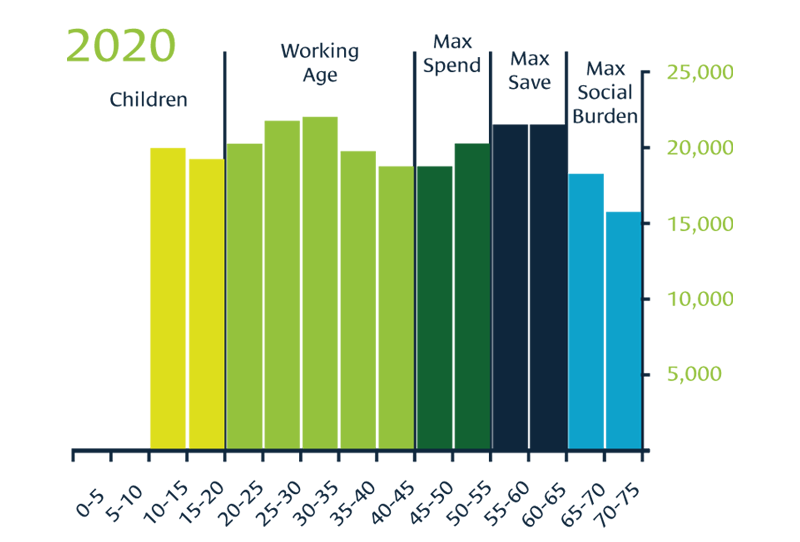Baby Boom or Bust?

Baby Boom or Bust?
When There’s No One Left to Buy…
Billy Crystal summed it up quite simply in the movie City Slickers.
Value this time in your life, kids, because this is the time in your life when you still have your choices. It goes by so fast.
- When you’re a teenager, you think you can do anything and you do.
- Your twenties are a blur.
- Thirties you raise your family, you make a little money, and you think to yourself, “What happened to my twenties?”
- Forties, you grow a little pot belly, you grow another chin. The music starts to get too loud, one of your old girlfriends from high school becomes a grandmother.
- Fifties, you have a minor surgery. You’ll call it a procedure, but it’s a surgery.
- Sixties, you’ll have a major surgery, the music is still loud, but it doesn’t matter because you can’t hear it anyway.
- Seventies, you and the wife retire to Fort Lauderdale. You start eating dinner at 2:00 in the afternoon, you have lunch around 10:00, breakfast the night before, spend most of your time wandering around malls looking for the ultimate soft yogurt and muttering, “How come the kids don’t call? How come the kids don’t call?”
- The eighties, you’ll have a major stroke, and you end up babbling with some Jamaican nurse who your wife can’t stand, but who you call mama. Any questions?
As bleak and hopeless as his minor breakdown in front of his young son’s show-and-tell class is, it does throw some light on the various stages of life we can expect to experience. Breaking it down, though, and applying it to how we impact the economy as we shift from demographic to demographic, we have our:
- Kid and teenage ‘grower’ years, where we consume everything and contributing nothing;
- Our twenties, the ‘worker’ years, where we finish school and enter the workplace, where we start to produce and begin to give back what we consumed in our formative years;
- Then the thirties and forties, the ‘spender’ years, where we produce the most and spend the most, making our biggest contributions to the economy; followed by
- The fifties and sixties ‘saver’ years, where we save more, spend less, in preparation for our retirement; until finally
- The home stretch. The ‘liquidator’ years, where we liquidate the assets we’ve built up through life in order to live out our remaining days in relative comfort.
That’s a very rough breakdown of our individual places in the economy and how it’s worked since around the 1940’s, when the ‘Baby Boomer’ generation began using mortgages to buy houses and the property market and home ownership became a very real part of everyone’s life, no longer just the preserve of the wealthy and affluent.
And, barring a couple of blips here and there, it’s worked well on the whole. Frighteningly, however, it all looks like it’s about to fall down. Up to now, it’s worked because the amount of people making their way through each demographic has been climbing, with the most people reaching their spending peaks in the last decade or so, and rewarding themselves with their biggest houses and all the trappings that go along with them.
No more baby boom
The problem is the birth rate. It’s been falling since the baby boom so as the ‘spenders’ of today move into the ‘savers’ group, and those ‘savers’ shift to the ‘liquidators’ demographic, there are less ‘spenders’ to replace them.
Cutting to the chase, the time is coming when the number of ‘liquidators’ far outmatches the number of ‘spenders’, leaving people looking retire and liquidate their assets, such as downgrading their large properties to something smaller and more manageable, then finding that there’s no one around to buy from them. It’s a very real issue and it’s getting closer every day.
But there’s hope
There is a way to avoid this market reversal, happily, and that is to sell now.
By selling sooner, rather than later, you can make the most of the current, buoyant housing prices and sidestep the coming problems of trying to unload valuable properties on a marketplace that’s greatly reduced in size.
When all is said and done, the successful economy and housing bubble is still just that; a bubble. And bubbles do burst. It hasn’t happened yet, but it’s coming. To reduce your chances of having to deal with the fallout of this one bursting, contact one of our sales team today to discuss some options.
Written by Charlie Jaggard and content for the article obtained by Mike Maloney
Recent Posts
What to Consider when Applying for a Home Loan
21 Apr 2024
8 Signs It's Time to Sell Your Home
01 Apr 2024












